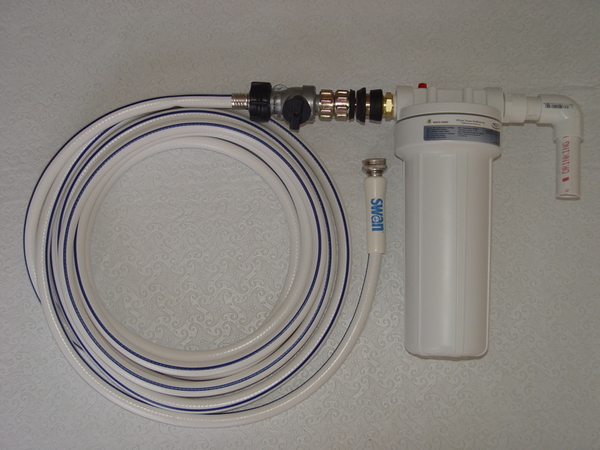bja
Well-Known Member
I never consume "hot" tap water! It carries heavy minerals over from inside the hot water heater tank,
BS! Where are these heavy minerals coming from?

I never consume "hot" tap water! It carries heavy minerals over from inside the hot water heater tank,
bja said:BS! Where are these heavy minerals coming from?
BS! Where are these heavy minerals coming from?
They sell the potable water rv hoses (white in color) at Lowes.









![Craft A Brew - Safale S-04 Dry Yeast - Fermentis - English Ale Dry Yeast - For English and American Ales and Hard Apple Ciders - Ingredients for Home Brewing - Beer Making Supplies - [1 Pack]](https://m.media-amazon.com/images/I/41fVGNh6JfL._SL500_.jpg)






Can you share the model number of the filter and where you got it?
Thanks
Boil some cold tap water in a pot for an hour.. Depending on your water chemistry you might notice a white layer of heavy minerals left on the pot after boiling from chlorine and other trace minerals found in your water. That white layer was the result of boiling water one time in a pot for one hour...
Now imagine that happening inside of your water heater every time the flame lights up to boil water for your bath, dishes, hand washing, etc., etc.. The only difference is, you don't get to clean and scrub the inside of your water heater like you do a pot on the stove.
Now multiply this by X amount of days/years that your water heater has been in service.. Your water heater now has a nice layer of sediment at the bottom of the tank and coating the sides.. Some of the sediment is solid but some is loose and can float around. Every time the water in the tank boils it can stir up all of that "sediment" into the rest of the water and send right thru your pipes and out of your tap... So, even if it is safe to drink (which I personally don't think it is) it still has sediment in it which can't be tasty or of high quality when it comes to potable water.
I don't claim to know the truth as to whether the water contains lead or other harmful minerals/toxins, but the fact that I CAN"T PROVE that it doesn't have those things in it is enough for me to not want to drink it. If you feel safe and like drinking tap water out of your water heater, then that is your choice!
So if the plumbing is pvc, a certain kind of hose is basically useless?
This.Its really easy to figure out. Drink from your hose... does it taste good? Then brew with the water.
Only waste lines are PVC. Supply lines are cpvc which is safe for potable water.
This is incorrect. CPVC is used for HOT water supply because it has a higher temperature handling than regular PVC. PVC supply lines are very common, although I prefer copper.